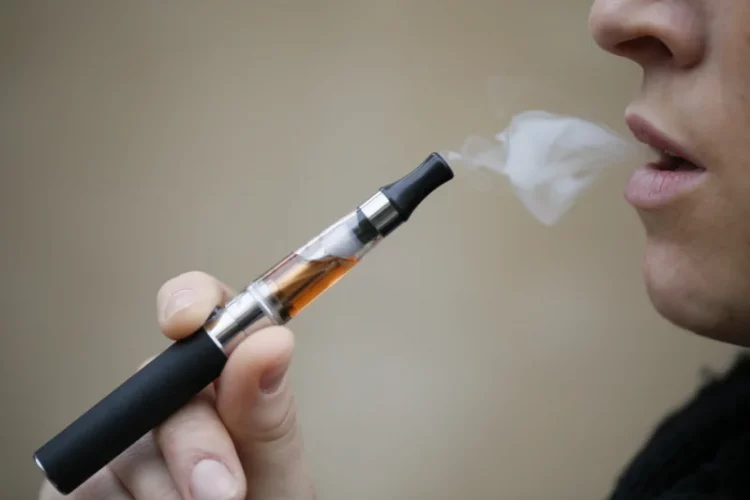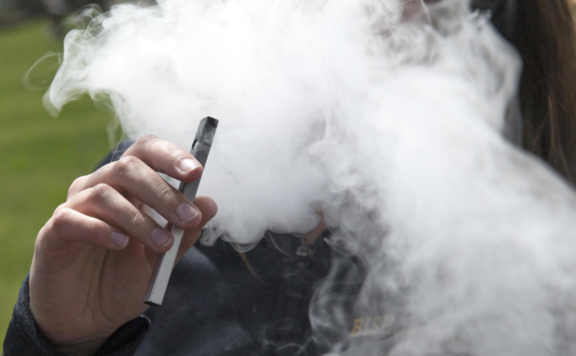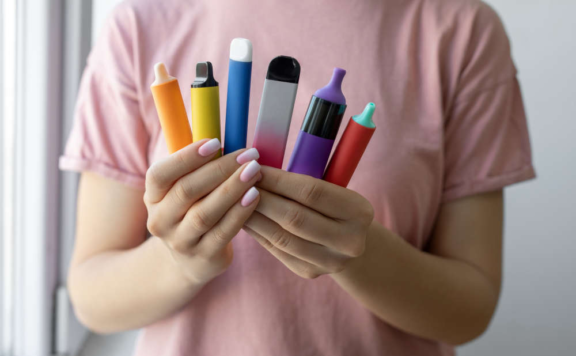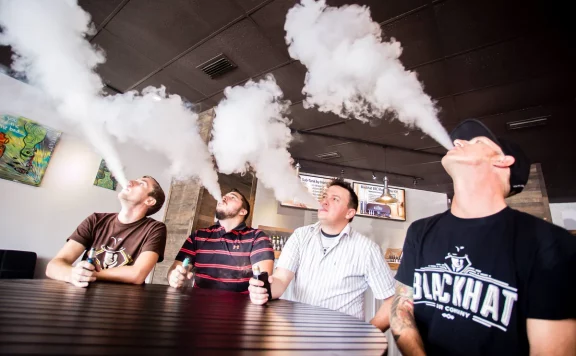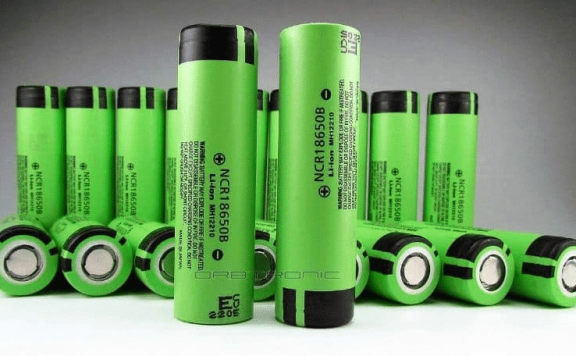Yet again, the Food and Drug Administration has uncovered a life-threatening hazard to the health of Americans: the FDA itself. The number of Americans smoking has surged during the past decade; however, the bureaucracies of the empire facility are working hard to see a change in the situation.
The FDA instructed Juul to abolish the business of electronic cigarettes (widely referred to as Juul), the highly productive technology to have ever been developed to help induce smokers to abolish smoking. Another proposal from the agency is to cut the quantity of nicotine in conventional cigarettes, a strategy that has not succeeded in luring smokers out of smoking in the previous years—and to the contrary, it would induce smokers to more risky ways of consuming nicotine, either through increasing their smoking rate or by purchasing full-strength cigarettes off the black market.
The prohibition of Juul, which was suspended for some time by a federal court following an appeal against the FDA order, not only goes against the public health standards but also political prudence: There is no reason of antagonizing millions of voters in a year when they are expected to elect their leaders by depriving them of their rights to vape? The FDA admitted that it was not able to point out any “immediate hazard” posed to the public by the Juul. It stated that the company failed to offer adequate information concerning the health implications of Juul, but that assertion is unconfirmed—Juul used over $100 million to apply to the FDA. Whatever the case, it is unreasonable to grumble over insignificant unknown hazards linked to e-cigarettes, which were approximated by the public health agency in the U.K. to be 95% safer compared to tobacco cigarettes.
The ban is only sensible as a sop to the special interests or the bureaucrats who consider electronic cigarettes as a risk, which offers the various nicotine benefits—enhanced mood, less anxiety, enhanced cognitive performance and concentration, as well as weight control—with the absence of too many toxins in tobacco smoke. Nicotine, just like caffeine, can be addictive and leads to a little short-term rise in blood pressure; however, according to the British Royal Society for Public Health’s conclusion, the two are “quite harmless.”
According to claims by FDA’s anti-vaping crusaders and their associates, electronic cigarettes are an entry point for teenagers into smoking, but the number of teenagers who are into smoking has declined rapidly, more so in the vaping era than during the past years. A decade ago, when electronic cigarettes entered the market, the rate of smoking among high school students was 13%: currently, the rate is below 2%.
Nobody wishes to see a teenager obsessed with nicotine, although the law already doesn’t permit them to purchase electronic cigarettes. According to surveys, vaping rates among students in high school have decreased tremendously during the previous two years, and teenagers who still do so, do it occasionally, minus the nicotine. (Most of them, as per the report, used vaping devices to consume marijuana, even though progressive crusaders are not applying that backing for the ban of marijuana sales to adults.)
The number of adults smoking has also witnessed a huge decline in the era of vaping, more so following the entrance of Juul, and the apparent health benefits. A study that was conducted recently, which targeted over 30,000 Americans over six years, came up with findings that showed that the number of cardiovascular illnesses among electronic cigarette consumers was a third less than the number of smokers- it was the same as the number of people who did not smoke or vape.
Several studies have come up with findings that e-cigarettes played a role in influencing smokers to quit and have shown more effective than other therapies supplied for nicotine replacement (such as gum or nicotine patches). Even smokers who are not planning to leave the habit are more likely to quit in case they use an electronic cigarette at least once a day. The success of Juul can specifically be attributed to its provision of a high nicotine dose in a highly absorbent form, just like in a tobacco cigarette. A study finding indicated that 50% of smokers who opted for Juul quit smoking in one year. A different one indicated that the likelihood of smokers quitting is higher when they consume full-strength Juul instead of the one with reduced nicotine.
This is what the public health has been waiting to hear. However, companies with less marketing of beneficial smoking-cessation commodities, bureaucrats, academics, and crusaders, whose careers are built on fighting cigarettes, have not welcomed this. Since the majority of Americans have experience using vaping devices to keep off smoking, is there a way anti-vaping crusaders can justify their careers? There is a lot of cash at stake: The FDA collects over $800 million annually in the name of tobacco user fees, which are channeled towards health enhancement by checking the side effects of tobacco products.
To maintain the flow of money, bureaucrats applied a misleading definition of the electronic cigarette (tobacco product), as well as set a new goal to get rid of regular nicotine consumption. From the time it launched the anti-electronic cigarettes campaign, the Center for Tobacco Products of the FDA has witnessed an increase in its staff to more than 1,100 people which is more than double its original size, and it has been giving out millions of dollars yearly as grants, with the largest portion directed to nonprofits preaching the anti-vaping gospel as well as to researchers advocating for the ban of nicotine.
Sadly, the misinformation campaign by the FDA has achieved its objective, with the help of mainstream media, which developed a moral panic by linking deaths that resulted from black-market THC commodities to e-cigarettes. During the onset of the vaping era, the majority of Americans discovered that electronic cigarettes had fewer health implications compared to tobacco cigarettes, however, the surveys that were done later showed that most of the risk posed by e-cigarettes was even greater—a misguided assumption that will cause early deaths to many smokers.
Banning nicotine is a fruitless and impractical goal. Abuse of alcohol is a more risky affair compared to teenage smoking, but it has been our realization that more problems will be created than solutions when adults are banned from buying alcohol. That is the same case with e-cigarettes. In case the FDA manages to ban Juul and related products, the remaining choice for Americans would be to go back to tobacco cigarettes or reconsider bootleggers.
Michael Siegel from Tufts University states that at least 4 million adults who use e-cigarettes to quit smoking continue to use them to ensure they don’t return to the habit. For three decades, Siegel has been researching tobacco control. He continues to state that in case FDA prohibits the majority of e-cigarettes, it would cause a good deal of ex-smokers reverting to smoking, leading to a public health disaster.
In the delusional reality of the FDA, upon the lowering of nicotine levels in cigarettes to a level that is considered “non-addictive,” smokers will be safe. In their previous announcement, the agency stated that they were planning to cut the nicotine levels in all cigarettes, even going further to define low-nicotine cigarettes as “appropriate for the safeguarding of public wellbeing.” According to Brad Rodu, a professor at the University of Louisville, it is an abnormal approval for a life-threatening product, more so given the previous unsuccessful efforts to use e-cigarettes to have smokers quit.
Currently, there is no real policy that can be expected from the FDA. Possibly Juul will be insulated by the courts against the madness of the FDA, and probably politicians eyeing another term in office will defend nicotine lovers. However, with the $800 tobacco fees, and control over nicotine prohibitions under the FDA, American’s health will still be exposed to danger.

